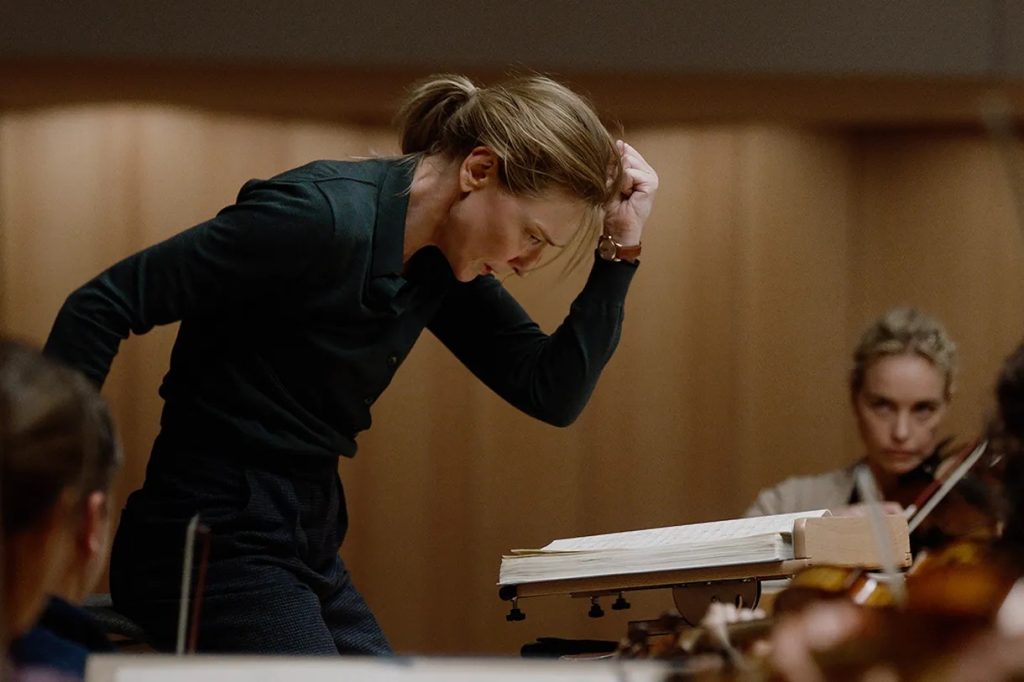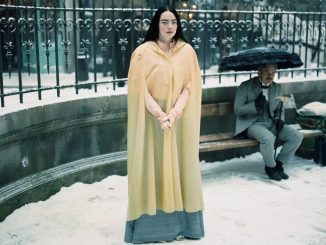
A few weeks back, I walked out of a Portland movie house feeling I’d just witnessed something truly extraordinary—Jerzy Skolimowski’s EO. This beautifully unhurried account of a donkey’s epic journey through bits and pieces of the modern world left me feeling a glowing sort of exhilaration, a kind of awe for which there are few adequate words.
What I will say, nevertheless—on the film’s behalf—is this: the donkey (the eponymous “EO”) is the film’s main character and the implicit nucleus of its prevailing point of view. But there is no anthropocentric sentiment in play: the donkey is a donkey throughout, and that hovering point-of-view is a kind of richly contextual awareness, casual and inclusive, and large enough to embrace EO and much else, including creatures and circumstances, “human” and otherwise.
And the poetic power of that alertness and awareness in the film resides as much in immediate sight and sound as in anything that is said or done in the onscreen action. The color cinematography is richly expressive without ever being arty or conventionally “pretty.” And the sound, ambient and otherwise, gives the film a strangely compelling musicality that has little to do with conventional movie music.
As such, EO is something better, and different, than a “must-see” movie. It’s fundamental cinema—alive to the best watching, listening and feeling a viewer can bring to it.
Meanwhile, some further highlights from the Stream & Dream Lounge:
Tár (Prime Video) is a sleekly seductive, subtly ironic character study. Cate Blanchett, with Todd Field directing, gives a brilliantly sustained performance as the eponymous orchestra conductor, whose blindness to the effects on others of her own high-minded manipulations leads to personal and professional crises that she repeatedly fails to fully recognize. It’s the portrait of a mad genius, but it’s also something more than that—the tragedy, let’s say, of a charismatic soul, a life in which genius and madness feed, disastrously, on each other.

Elvis (HBO Max) is Oscar-bait that has succeeded in getting an armload (8) of nominations. But it’s also a spectacular and rather unwieldy jumble—a prestige biopic, by the chronically overamped Baz Luhrmann, about an over-exposed show-biz immortal who is in no particular need of further introduction. What I do like about it, however, is that it also tries to be a portrait of Presley’s oddly manipulative manager, Col. Tom Parker with the latter (queasily played by Tom Hanks) also serving as the film’s not entirely reliable narrator. There’s a very interesting movie waiting to be made in all that, but for the most part, it’s still waiting.
The Fabelmans (Prime): Steven Spielberg’s portrait of the artist as a young boy is smartly entertaining throughout, but it comes most fully to life with the adults in the story—the boy’s father (Paul Dano), his parents’ “best friend” (Seth Rogen), a fiercely irascible uncle (Judd Hirsch), and — best of all, by far—the fledgling filmmaker’s conflicted, angelic mother (Michelle Williams). The great Hollywood director John Ford is also a presence in the story, mostly by way of allusions to his films, but ultimately “in person” in a memorable scene where he’s played incognito by someone you probably know but may not recognize at first.
Slow Horses (Apple TV, two seasons), based on the spy novels of Mick Herron, chronicles the tragicomic escapades of a group of misfit British spies. Gary Oldman has an iconic role as the uproariously rumpled and fearsome leader of the group, but a charmingly gritty ensemble of supporting players has every bit as much to do with the series’ prickly, roguish, antically rank appeal. A raspy theme song by Mick Jagger is an apposite part of the overall mix.
God’s Crooked Lines (Netflix), a Spanish production directed by Oriol Paulo, is a brilliantly convoluted psychological mystery in which a glamorous heiress (Bárbara Lennie) gets herself checked into a posh psychiatric asylum, ostensibly for purposes of investigating a recent inmate death. But she soon finds herself challenged by doubts about the place and its imperious leading doctor—as well as by uncertainties about her own motives and mental state. All in all, it’s a richly engaging character study, steeped in social psychology and emerging from a slow-burning psychodrama fueled by mysteries within mysteries.
Honorable mentions: (1) Harry Melling as Edgar Allan Poe in Pale Blue Eye (Netflix), an atmospheric period piece and mystery tale that falls flat after a very promising start; (2) the vivid existential fragmentation of Decision to Leave (Prime), Park Chan-wook’s South Korean tale of a detective falling in and out of love with the suspect in a murder case—and with much else in his life; (3) Harrison Ford and Helen Mirren as Montana ranching royalty in 1923 (Paramount+).


Love Mick Herron’s Slow Horses and Jackson Lamb? Interested in real spies like Kim Philby, John le Carré, Alan Pemberton or Bill Fairclough and how they got on with the SAS? Then read Beyond Enkription in The Burlington Files espionage series about the real scoundrels in MI6 aka Pemberton’s People. See a brief and intriguing News Article dated 31 October 2022 in TheBurlingtonFiles website and get ready to call your local film producer!